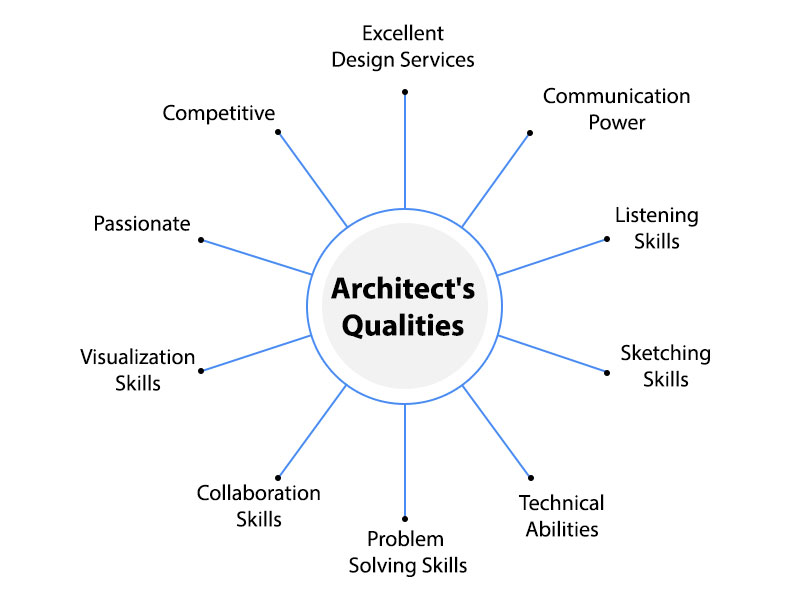Communication Skills for Architects
Enhance your communication abilities to collaborate, present, and lead in architectural projects.
Effective communication is key to success in architecture. Whether you’re working with clients, presenting designs, or collaborating with teams, your ability to articulate ideas clearly and persuasively can make or break a project. This course is designed to help architects master the essential communication skills needed in the architecture industry, enhancing client relationships, teamwork, and presentation skills.
What is Communication Skills for Architects ?
Communication Skills for Architects refers to the ability of architects—whether in software, infrastructure, or traditional building design—to effectively convey ideas, collaborate with stakeholders, and bridge technical concepts with business goals. Strong communication skills are essential for architects to succeed in their multifaceted roles, which often require managing teams, presenting solutions, and translating complex designs into actionable plans.
Key aspects of communication for architects include:
- Listening Skills: Understanding client requirements, team concerns, and project goals by actively listening to feedback and input.
- Visual Communication: Using diagrams, blueprints, or design models to illustrate concepts clearly.
- Verbal and Written Skills: Explaining technical details in a way that non-technical stakeholders can understand, whether through presentations, emails, or documentation.
- Conflict Resolution: Mediating disputes and finding common ground among diverse project teams.
- Collaborative Engagement: Working seamlessly with developers, designers, and business leaders to ensure alignment and clarity.
What the Course Offers ?
Client Communication
“Learn how to communicate architectural concepts effectively to clients, ensuring that their vision is understood and met while managing expectations.”Presentation Skills
“Master the art of presenting architectural designs and ideas with clarity, confidence, and impact, both in-person and virtually.”Team Collaboration
“Understand how to foster effective communication within multidisciplinary teams, ensuring smooth collaboration between architects, engineers, contractors, and other stakeholders.”Negotiation and Conflict Resolution
“Learn techniques for negotiating project terms and resolving conflicts that may arise during the design and construction phases.”Design Explanation and Technical Communication
“Develop the ability to explain complex technical details in a way that is accessible to non-experts, including clients, stakeholders, and contractors.”Visual and Written Communication
“Enhance your skills in visual communication, including the use of diagrams, sketches, and renderings, as well as writing clear and concise reports and documentation.”Cultural Sensitivity and Adaptability
“Learn how to communicate effectively with diverse clients and teams, respecting cultural differences and adapting your approach accordingly.”

Our Approach
Our course delivers three key components
Mastering Client Communication
- What You’ll Learn:
“Learn the strategies for building strong client relationships, understanding their needs, and communicating your design ideas effectively.” - Why It’s Important:
“Clear communication with clients helps ensure that expectations are met and fosters long-term trust, which is essential for repeat business.”
Polished Presentation Techniques
- What You’ll Learn:
“Understand the key elements of an effective presentation, from structuring your content to delivering it with confidence and impact.” - Why It’s Important:
“Architects often need to pitch ideas to clients, investors, or stakeholders, and strong presentation skills can significantly influence project approval and success.”
Collaborative Communication with Teams
- What You’ll Learn:
“Master the techniques for communicating with multidisciplinary teams, ensuring that everyone is on the same page and contributing to the project’s success.” - Why It’s Important:
“Effective collaboration is essential in architecture, where teams must work together seamlessly to bring complex designs to life.”
Benefits of This Course
Improved Client Relationships
Develop the skills to manage client expectations and communicate complex ideas in a way that builds trust and satisfaction.
Enhanced Presentation Skills
Learn how to deliver powerful, persuasive presentations that make a lasting impact on clients and stakeholders.
Effective Team Collaboration
Gain the communication skills needed to foster cooperation and teamwork, ensuring that all parties are aligned and working toward the same goal.
Conflict Resolution Abilities
Learn strategies for resolving disagreements and handling conflicts that may arise during project development.
Clear and Concise Communication
Master the ability to present ideas clearly, whether in written reports, emails, or technical documentation.
Boosted Professional Confidence
Enhance your professional presence and confidence when communicating with clients, teams, and in public presentations.
Career Advancement
Sharpen your communication skills to increase your effectiveness as an architect, opening up new career opportunities and pathways for leadership roles.
Conclusion
Communication is the cornerstone of successful architecture. Whether you’re discussing design ideas with clients, collaborating with engineers and contractors, or presenting to stakeholders, your communication skills will determine the success of your projects. This course equips you with the essential tools to excel in both verbal and written communication, enhancing your ability to lead projects, foster relationships, and ultimately become a more effective and confident architect. Enroll today and take your architectural communication skills to the next level!”